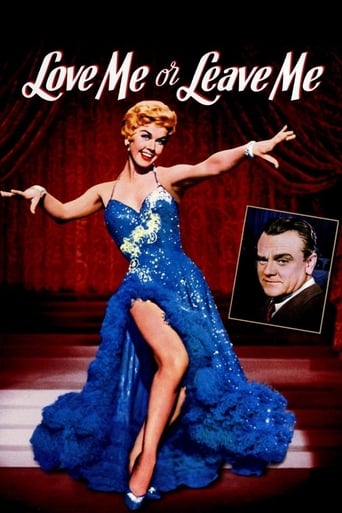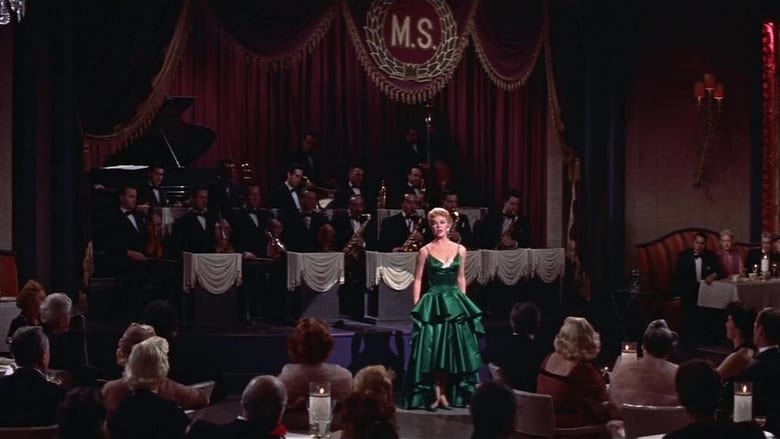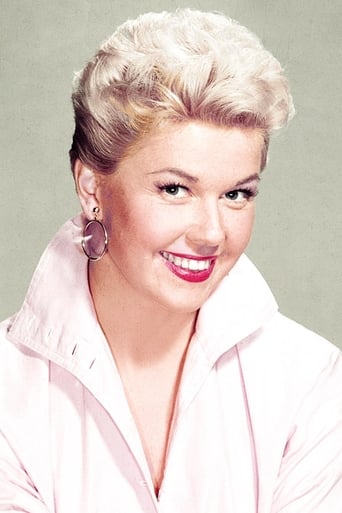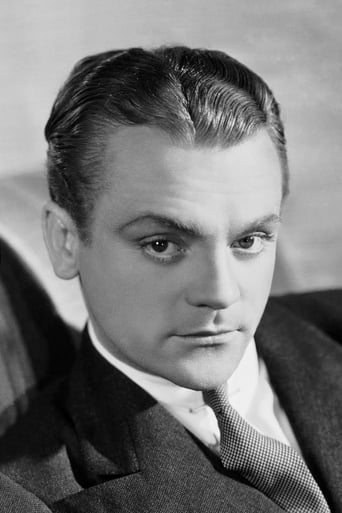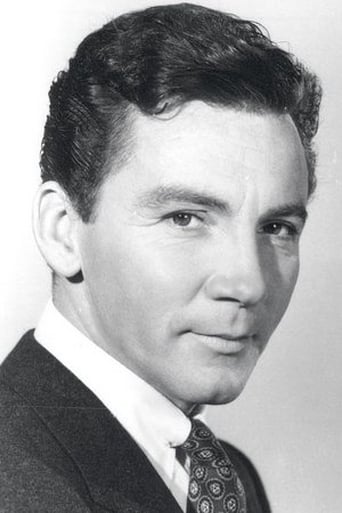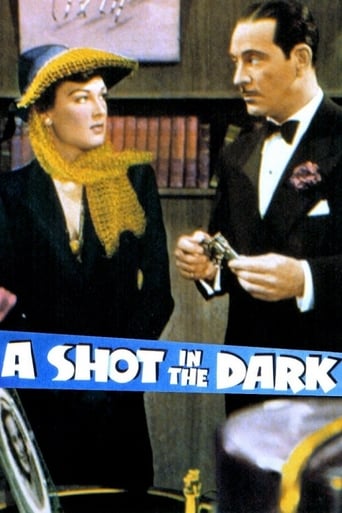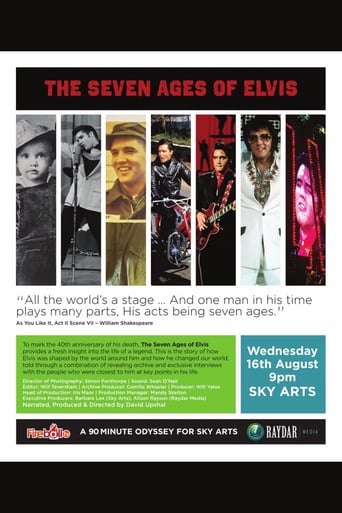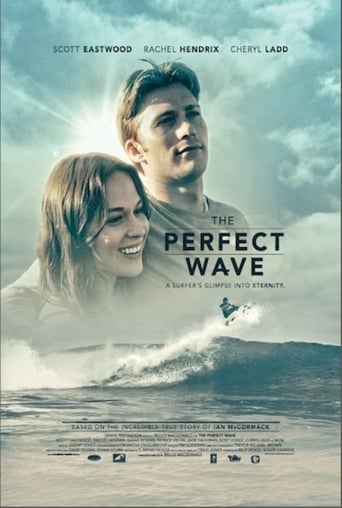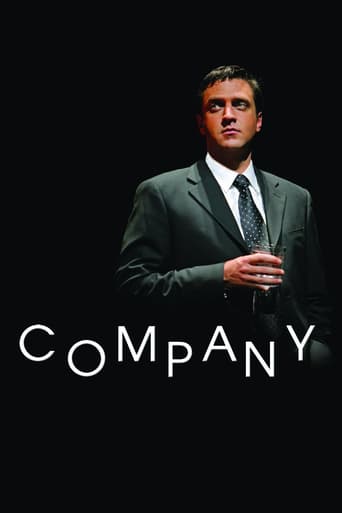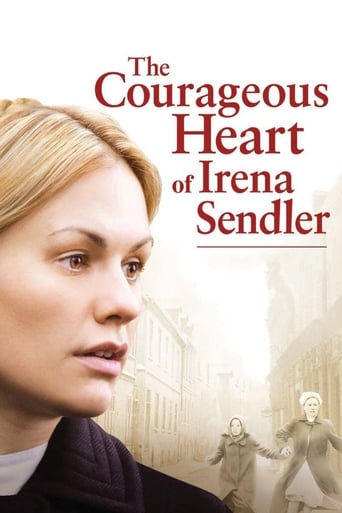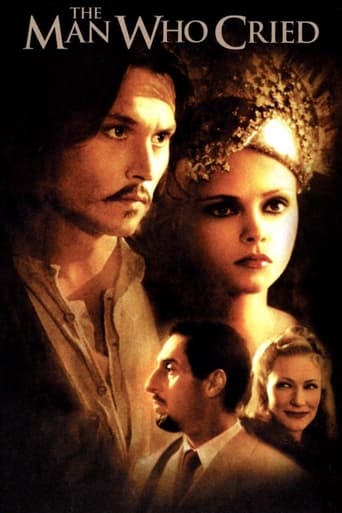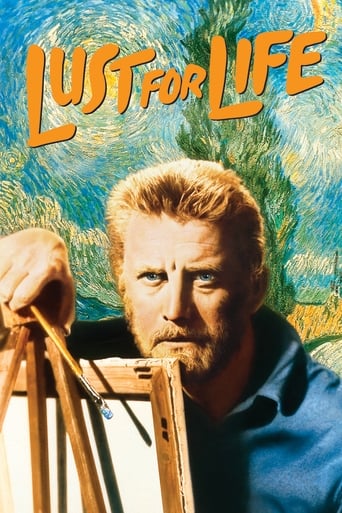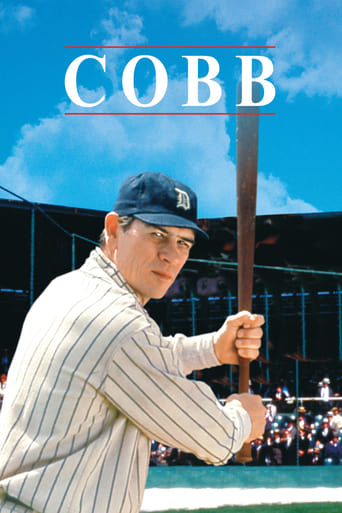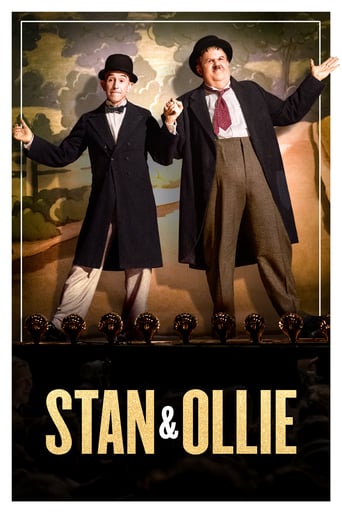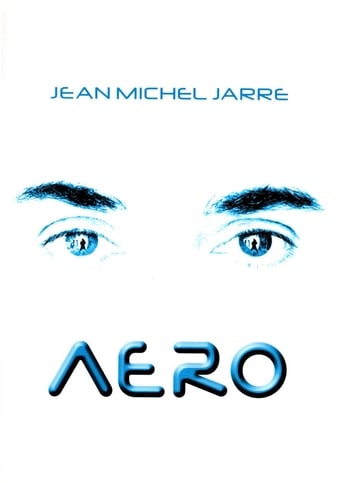Love Me or Leave Me (1955)
A fictionalized account of the career of jazz singer Ruth Etting and her tempestuous marriage to gangster Marty Snyder, who helped propel her to stardom.
Watch Trailer
Cast


Similar titles
Reviews
Wonderful Movie
Terrible acting, screenplay and direction.
Pretty good movie overall. First half was nothing special but it got better as it went along.
It's the kind of movie you'll want to see a second time with someone who hasn't seen it yet, to remember what it was like to watch it for the first time.
Nobody could play a mean, nasty, unlikeable character in the movies better than James Cagney. The veteran actor proved his mettle as Martin "Marty" Snyder in "Love Me or Leave Me." Doris Day was an excellent singer and she does a very good job in this film. But, Day's voice sounded nothing like that of Ruth Etting, whom she plays here. Day's singing is robust and full of life. She plays her character that way here as well, even in the somber numbers. That's quite different from the character and musical delivery of Etting. She had a distinctive sound – higher in the early years, and somewhat nasal, but appealing in later life. And, she had a tinge of sultry about her when she sang. Etting said she would have preferred someone else to have played her in this film. If Moe "The Gimp" Snyder was as mean and bad a character as he is in this film, one might conclude that Ruth Etting was nuts for marrying him – let alone, having anything to do with him at all. But this movie is Hollywood, and a highly fictionalized account of the years of Etting's career as a singer. Without a researched biography book, too little about Etting's life is really known. And, of what has been written about her, many pieces are conflicting from source to source. At best, her past is fuzzy. One wonders why more details weren't written about her childhood and early career. Even with the scandal at the height of her career (former husband shooting current lover), Etting's life remains something of a mystery. While Day's acting is OK here, her character strikes me as too strong and determined. From what we know about Etting, she was anything but that way. Her character here seems just not right. The rest of the cast are OK. Some were fictional, others based on real people. This film is entertaining for the songs that Doris Day sings. But as a biopic about Ruth Etting it seems too unreal. Hollywood tends to glamorize the lives of musical people in its biopics. In this case, MGM did a major fictional piece with many changes in Etting's personal life. Some facts about her life and career are noteworthy for their exclusion in this film. The first is that Martin "Moe the Gimp" Snyder was married and that he divorced his wife to marry Etting. (Doesn't that throw a different light on the whole movie and its implication that Ruthie was pressured into marrying the Gimp?) The second is that Snyder wasn't a wealthy business owner and gangland boss. He worked as a bodyguard for prominent people, including those in the entertainment field, and had many contacts there. The third is that Etting's second husband, Harry Myrl Alderman ("Johnny," in the movie), also was married when he and Etting began their relationship. (After Snyder shot Alderman, the latter's wife accused Etting of alienation of affections when she filed for divorce.) From the facts known about her but not shown in this film, is it too much to wonder why Etting's career may have so soon come to an end? Some other people with Hollywood scandals survived them to go on with their careers. But, if Ruth Etting was seen as a home wrecker in the 1930s, that might have been enough to end her career in Hollywood. But why her singing career? Again, some mystery. Maybe Etting really loved Snyder and didn't care about breaking up his marriage. Or, she might have married him just for his entertainment connections, as this movie implies. That would be a reason to tolerate his crude and mean nature. Maybe she fell in love with her piano player, and didn't care that he was married. Or, she didn't care about her career at that point. The movie implies the Snyder roughneck stuff might have turned Hollywood off for using Etting in films. She starred in nearly three dozen shorts from 1929 through 1936. Most were short story plots in which she sang two or three songs. They were entertaining musically, but the acting was mostly like that of B-films. If anything, Etting seems plain or droll in her roles in the shorts I've seen. She did appear in three feature films, but only in minor roles to sing a number or two. She said herself that she didn't know how to act. Had she real talent for acting, one would think Hollywood would have ensured that she weathered the scandal and made a comeback. Rather, I think her film career never really got launched simply because she wasn't much of an actress. Without her voice, she wouldn't have been in the shorts she made. Anyway, after the scandal, she married Alderman and the couple soon after retired to live in Colorado Springs away from the spotlight. They probably had a comfortable life, because she had done very well recording more than 150 songs -- including 60 hit tunes, during the decade before she retired. In her divorce settlement with Snyder, she had to pay him $50,000.In the mid-1920s to mid-1930s, Ruth Etting was known as the Sweetheart of radio. She had a distinctive voice and was well-liked as a singer. She was a leading recording artist for more than a decade. Of her 60 hit tunes, some have been etched in musical history. Among them are "Shine On, Harvest Moon," 'Love Me or Leave Me," "Shaking the Blues Away," "You're the Cream in My Coffee," "Button Up Your Overcoat," "Back in Your Own Back Yard," "Dancing With Tears in My Eyes," "It All Depends on You," and "Good Night, Sweetheart."By the way, neither Etting nor Snyder were happy about the way this film turned out.
This is really a 2 person film, as either Jimmy or Doris is in virtually every scene of this bio of 1920's & 30's singer and film star Ruth Etting. Cagney is once again playing a gangster, the role no one did better. Marty (the Gimp) Snyder is a hood on the peripheral edge of show business, he runs a company that supplies a linen service to the various clubs in Chicago. He's not a two bit punk, but he doesn't have the credibility or notoriety of a Capone or Nitti. He is well known, feared and respected in the speakeasy's and clubs and the owners are more than willing to introduce him to the various showgirls and dancers, which is where he first encounters Ruth Etting, working in a dime a dance dive. Cagney is playing a character similar to his roles in "Public Enemy" and "White Heat." He's cocky, arrogant and possesses an ability to manipulate and coerce to get what he wants. In the case of Ruth Etting, it is initially sex, but he can also see that she has an incredible singing talent which he can exploit as her manager. She is willing to be controlled, as long as he can advance her career. Marty Snyder does get things done, but Ruth Etting has to decide if his obsessive control and eventual stalking is worth it. Doris Day is superb in this dramatic role that also calls for quite a bit of singing and dancing within the context playing Etting on stage. For those used to her in the frothy WB musicals of the 40's or early 50's or in the light romantic comedies she would do later, this is something that shows what a truly excellent and versatile actress she was. She is also smoking hot, as she shows off an excellent body in some sexy outfits that she performs the various song and dance numbers in.
As a performer, Doris Day had it all from the start. Beautiful, sexy, and gifted with one of the loveliest voices ever to grace the silver screen, she also had an enormous gift for light comedy that made her a superstar at Warner Bros in a series of lighter-than-air musicals as good as anything MGM and the Freed unit ever produced. And later on, her talent for comedy would make her a legend in three unforgettable, hilarious films co-starring her pal Rock Hudson; the first of these, PILLOW TALK, would garner Day her only Oscar nomination.Now a talent for comedy is not to be despised; in fact, any actor will tell you that in many ways comedy is harder to do than drama. But it seemed to come so easily to Day that when she made the 1955 biopic of 1920's singer Ruth Etting, LOVE ME OR LEAVE ME, some of her fans were shocked. For while LOVE ME OR LEAVE ME has plenty of music in it, sung only as Day could sing, it was a far cry from the lightweight stuff people associated with her.LOVE ME OR LEAVE ME is a slightly fictionalized biography of Ruth Etting, who was quite a big singing star in the 1920s and who actually made a couple of film appearances in the early sound era. And it marked a huge departure for Day, playing a broad on the make with questionable morals who gets mixed up with Chicago gangster Martin "The Gimp" Snyder, played with his customary intensity by the legendary James Cagney.Day does not pull any punches in this film. Etting is no innocent girl from the country. She is an ambitious singer who wants to go places and is not too scrupulous about allowing Snyder to help her career along. That he does so because he is smitten with her she is fully aware of but she tries to pretend she doesn't notice. But Snyder, though a thug, is not a fool, and he is most definitely not accustomed to being denied what he wants. So when Ruth finally gets her big break in the Ziegfeld Follies, and Marty is barred from backstage, he throws a huge fit, breaks her contract with Ziegfeld, and rapes Ruth in a shockingly obvious scene for a 1950s film. Next thing we know, she has married him.Ruth is a woman who is great on the stage but cannot stop making bad choices in life. Marrying Snyder out of a sense of obligation, she does not love him and it isn't long before she is in utter misery, particularly when she goes to Hollywood and reunites with old flame Johnny Alderman (Cameron Mitchell), who she still carries a torch for but does not dare to get close to for fear of what her insanely jealous husband will do.This is by far the hardest-hitting film Doris Day ever made, and pitted against the immortal Cagney, she reveals a set of acting chops as sharp and as hungry as his. She matches him scene for scene and moment for moment, and their scenes together grow in intensity until the final confrontation when she demands a divorce, which devastates her husband and drives him to seek revenge.It would be unfair to reveal too much more. This is without a doubt my very favorite of all of Doris Day's movies, an unflinching look at a woman who isn't always sympathetic, and Day has no problems showing Etting's true nature, warts and all. And when she is working with Cagney the screen threatens to catch fire.Brilliant, intense, disturbing, and with gorgeous music. What a package.
Out of MGM, Love Me or Leave Me is directed by Charles Vidor and stars Doris Day, James Cagney & Cameron Mitchell. Written by Daniel Fuchs and Isobel Lennart, the film is loosely based on the true story of legendary 20s torch singer Ruth Etting (Day) and her rise to fame propelled by Chicago gangster Marty "The Gimp" Snyder (Cagney). It's shot in CinemaScope/Eastmancolor and features a number of Etting standards along with a couple of new tunes written especially for the film.Vidor's movie was a box office success that earned six Oscar nominations, one of which was for Cagney in the Best Actor category. Most surprising on the nominations list is the absence of one for Day. Surprising since as good as Cagney is here (all snarly, bossy and maniacal gangster like), this most assuredly is Day's movie as she turns in arguably a career best performance. Etting herself wanted Jane Powell to play her in the movie, whilst Ava Gardner was courted, and courted back, for the role. But Cagney was sure that Day was right for the part, how right he turned out to be.That Day would be able to carry off the tunes was a given, that she could immerse herself successfully in a character calling for a strong dramatic bent, still carried a question mark. Thankfully she delivers, even if her fluffy girl next door persona remains in tact. This comes down to much of the hard edge of the story from the source being absent or skirted over (Etting's battle with alcohol, pre-marital sex & infidelity), but Day and Cagney really manage to make the real life odd coupling come alive on the screen; and thus the dark aspects loom in the air just about enough to make us aware. She shows a naive, vulnerable, yet fame hungry streak, while he shows up to be a driven bully who literally will do what it takes to protect his "possession".However, the blend of a musical, gangster basis and biography never fully works. In fact, even tho the songs are a joy (particularly a sultry Day warbling Ten Cents a Dance), there's too many numbers used. Many times when the film threatens to really break out into bold territory, a number is inserted and the dramatic ark hits the buffers. This also gives off a feeling of repetition as time and again Cagney goes ape about something, Doris sighs and then she sings, and on it goes. All told the film is an odd fusion of intents, as odd as the central relationship of the piece in fact. In lesser hands it could have been a misfire (credit to good performances from Mitchell & Robert Keith too), but even tho it has faults, and suffers from the absence of daring, the lead actors make it a hugely enjoyable movie regardless. 7/10

